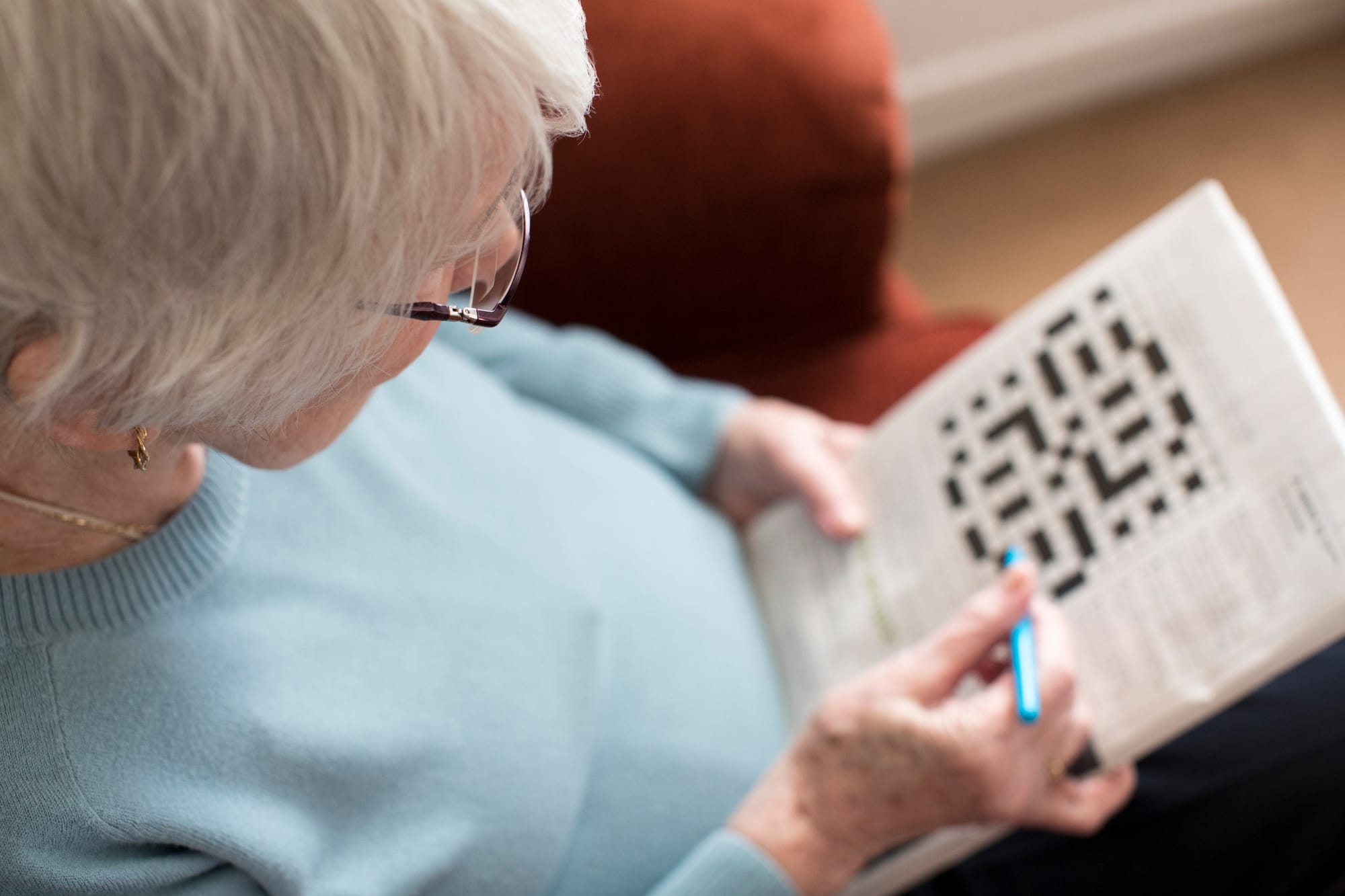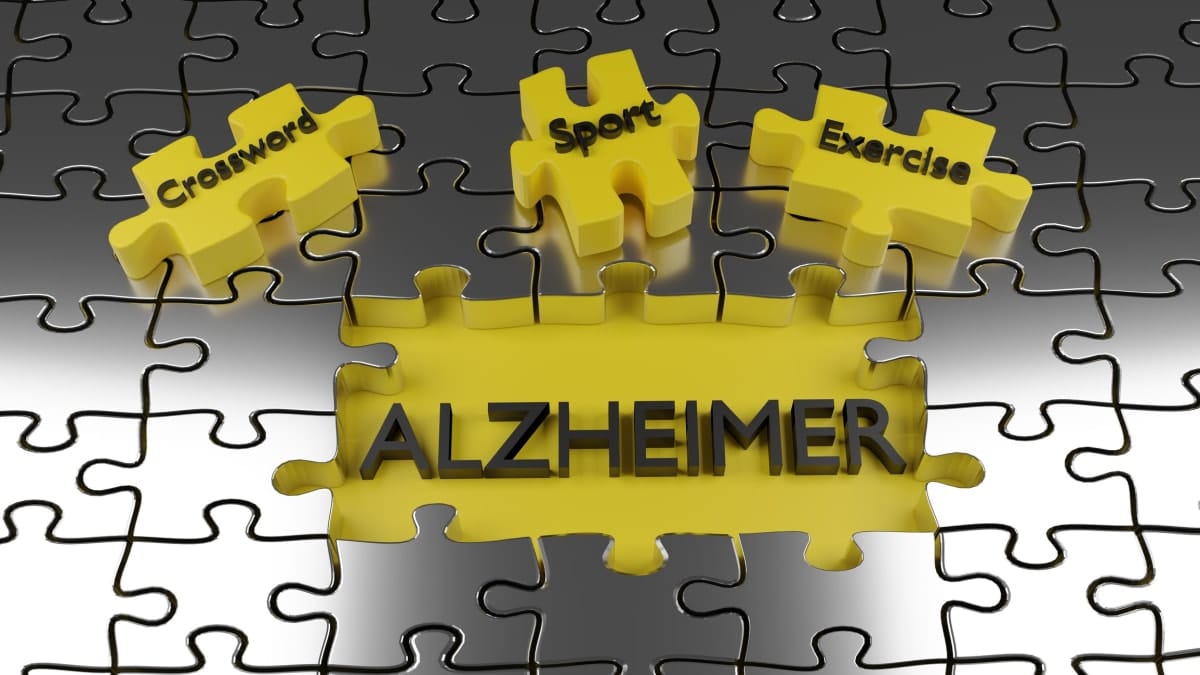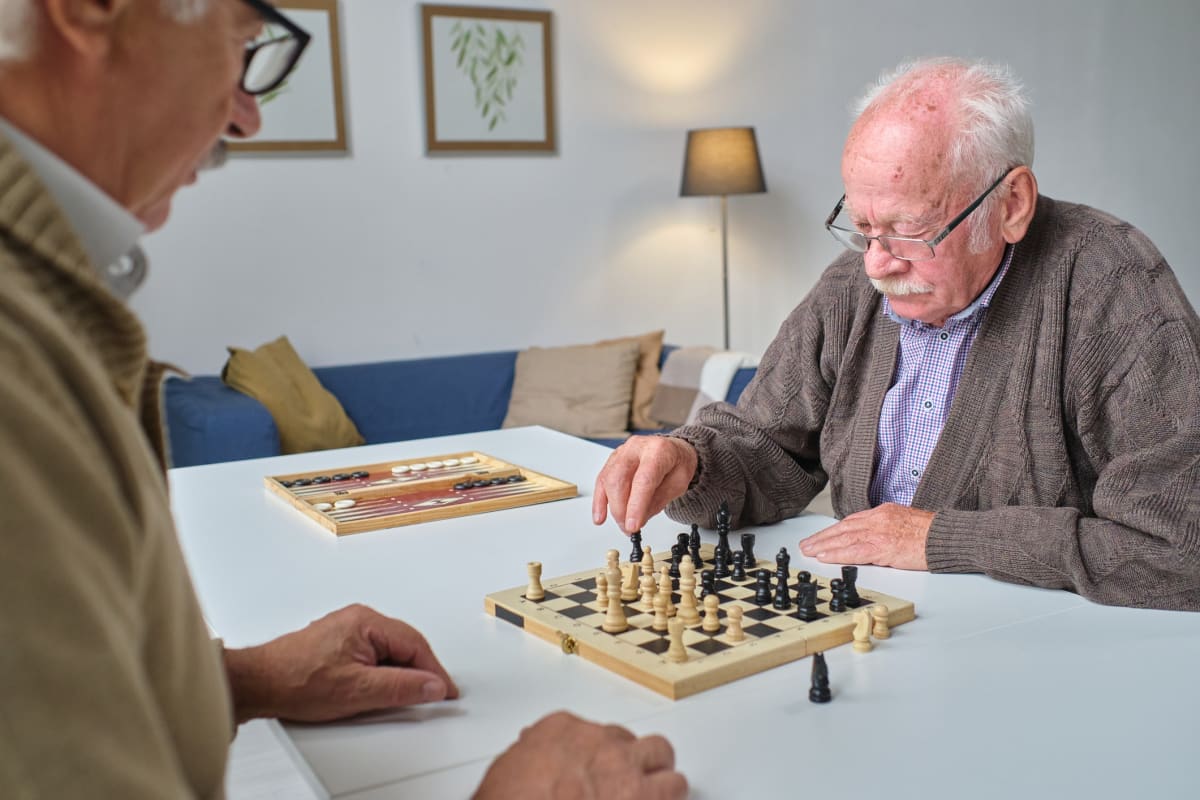
Activities undertaken by older people such as using computers, writing, and playing puzzles or games are more strongly associated with avoiding dementia than crafting activities like knitting or painting, or being a social butterfly, according to a new study.
The findings – some of the most robust on this topic to date – may help older individuals and aged care professionals plan more targeted approaches to reducing dementia risk.
In 2022, there were 55 million people worldwide living with dementia, with 10 million new cases emerging each year. Dementia impacts the physical and mental health of those afflicted, and the wellbeing of their carers and families, and is a strain on health systems globally.
The Monash University research – using the established ASPREE dataset – found that older participants who routinely engaged in literacy and mental acuity tasks such as taking education classes, keeping journals, and doing crosswords were 9-11% less likely to develop dementia than their peers. Creative pursuits such as crafting conferred a 7% decrease in risk.
The results remained significant even with adjustment for earlier education level, and socioeconomic status.
In contrast, the size of someone’s social network and the frequency of external outings to the cinema or restaurant were not at all associated with dementia risk reduction.
The study’s senior author, Associate Professor Joanne Ryan, from the School of Public Health and Preventive Medicine, says:
“Identifying strategies to prevent or delay dementia is a huge global priority. We had a unique opportunity to close a gap in knowledge by investigating a broad range of lifestyle enrichment activities that older people often undertake, and assess which of those were most strongly aligned with avoiding dementia.”
There’s already good evidence on the strong links between early-life education and reduced dementia risk in later life.
But most studies on older people focus on just one or two specific leisure activities, rather than the spectrum of activities many older people undertake, and even fewer studies have taken into account individuals’ education and health status.
These diverse leisure activities include literacy and mental acuity tasks such as adult education classes, keeping a journal, and completing quizzes and crosswords, more passive activities such as keeping up with the news or reading, creative hobbies such as woodworking or knitting, and social activities such as meeting friends or going on planned excursions.

Lead author, Dr Zimu Wu, who completed his PhD earlier this year, drew data from 10,318 Australians aged 70 and older participating in the ASPREE project, and the ALSOP (ASPREE Longitudinal Study of Older Persons) sub-study.
No significant variations were found between men and women, who were all without dementia at enrolment into ASPREE, and underwent standardised cognitive measures over a 10-year period. Participants self-reported social and leisure activities in ALSOP questionnaires.
Prior neurobiological research may shine some light on the mechanisms driving the results.
Many active literacy and mental acuity activities combine critical thinking, logical reasoning, and social interaction. These build resilience against brain disorders by increasing neuronal and synaptic connectivity, and driving efficiency in brain networks.
Literacy activities include education class attendance, computer usage and writing – all of which require the processing and storage of new information, which slows brain ageing and protects against dementia. Writing is a particularly complex process utilising a broad swathe of cognitive functions.
Computer use engages multiple brain regions that must coordinate with the motor skills used when typing, and adopting new technologies is a cognitively challenging process.

Mental activities such as crosswords and puzzles, and playing games/cards/chess, often also involve a social interaction component. They’re sometimes competitive, and involve complex strategies and problem-solving.
They typically engage a variety of cognitive domains, including episodic memory, visuospatial skills, calculation, executive function, attention and concentration, language skills, and semantic memory.
“I think what our results tell us is that active manipulation of previously stored knowledge may play a greater role in dementia risk reduction than more passive recreational activities,” says Associate Professor Ryan. “Keeping the mind active and challenged may be particularly important.”
The results don’t completely rule out the fact that people who are naturally drawn to these leisure activities may possess specific personality traits that are otherwise beneficial, or they may generally stick to better health behaviours.
Therefore, despite any structural brain changes arising after cognitive training, it remains difficult to prove the extent to which particular leisure activities can be translated into dementia prevention programs.
Additionally, social connection may still be quite important to cognitive health and mental wellbeing, even though it didn’t show a clear link with dementia risk in the study. The participants were cognitively healthy, and were likely already leading socially active lives, such that the cognitive benefits of strong social networks may be less obvious in this group compared to the general public.
“While engaging in literacy and mental acuity activities may not be a magic pill to avoid dementia, if that was your goal and you had to choose, our research certainly suggests these are the activities most likely to support prolonged good cognitive health,” says Associate Professor Ryan.
ASPREE is a two-phase research project conducted in Australia and the US, comprising a completed clinical aspirin trial and an ongoing follow-up longitudinal study, ASPREE-XT. ASPREE participants were mostly aged over 70 and without dementia, severe physical disability, or known cardiovascular disease at enrolment into the trial. ALSOP is an ASPREE sub-study consisting of a series of questionnaires about aspects of social and medical health.





